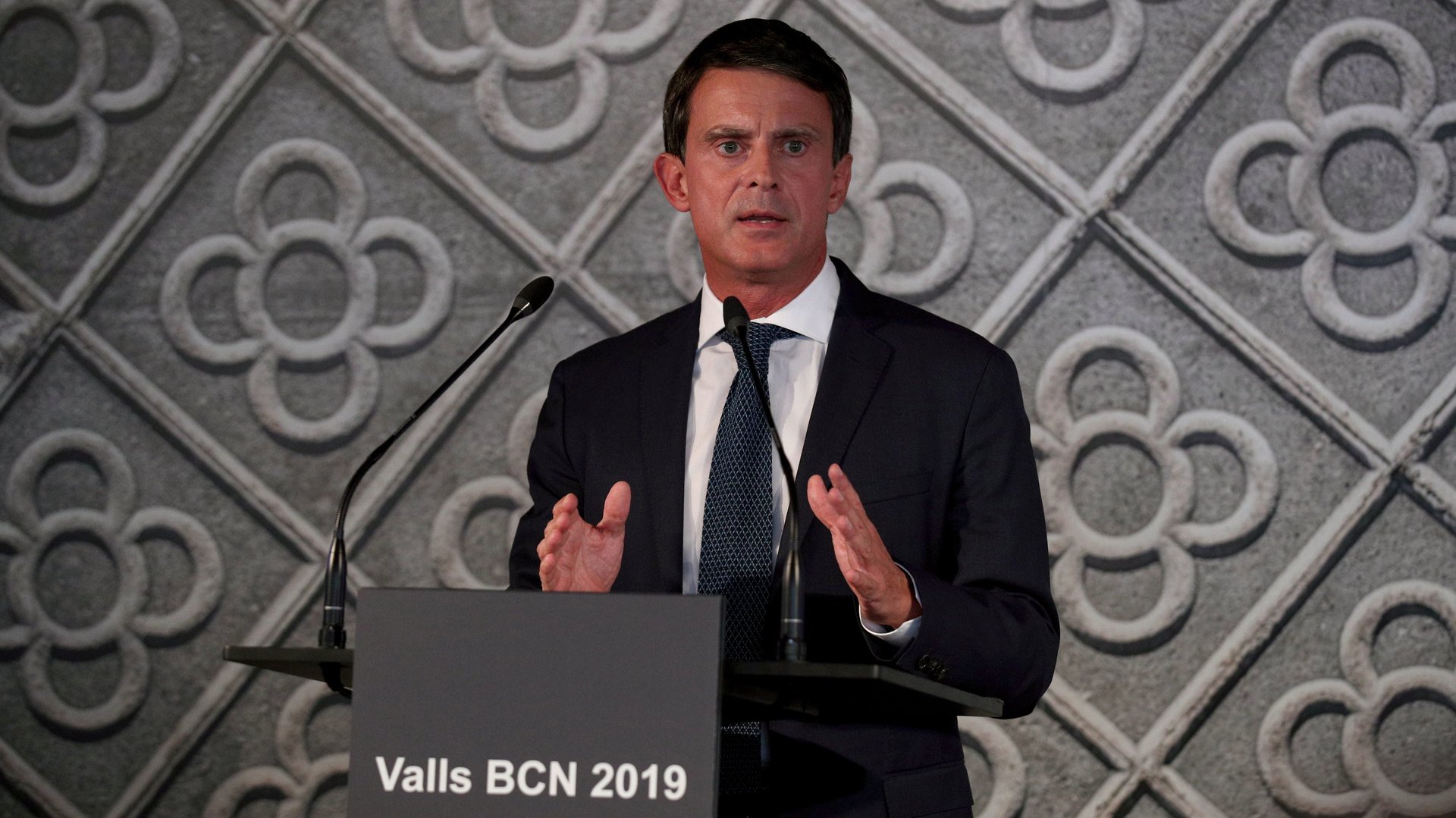The former French prime minister is running for mayor of Barcelona in Spain
If you want to understand the future of the European Union, look no further than former French prime minister Manuel Valls. After a long political career in France, the center-left politician wants to become the next mayor of Barcelona. In Spain.


If you want to understand the future of the European Union, look no further than former French prime minister Manuel Valls. After a long political career in France, the center-left politician wants to become the next mayor of Barcelona. In Spain.
On Tuesday (Sept. 26), Valls announced his candidacy in front of a large crowd in the Catalan capital. Speaking Spanish, Catalan, and even some French, he told his audience: “Since my birth … my relationship with Barcelona has been intimate, constant.” Valls was born in Barcelona, grew up in France, and is a French citizen. He will aim to seize power from the current leftist mayor, Ada Colau, in local elections in May 2019.
This marks the first time that a former head of government in the EU has run for office in a different country, and Valls’ candidacy challenges the view of European politics as first and foremost a national question. Many observers are celebrating his move as the ultimate symbol of pan-European unity.
Valls served as France’s prime minister from 2014-16 and is currently a member of its parliament. He no longer holds Spanish citizenship, but has the right to run in Spanish municipal elections as a European citizen. All EU citizens can run in the municipal elections of a member state, even if it’s not their country of origin. However, French law prohibits him from serving as a mayor and an MP at the same time, and so he announced in his speech that he was resigning from his post.
After an unsuccessful bid for the French presidency in 2017, Valls was reelected as an MP for the first constituency of Essonne, a northern department that belongs to the Parisian agglomeration. But rumors had begun circulating that he was focusing his political ambitions on Spain. He was heavily involved on the pro-unity side of the independence referendum in Catalonia earlier this year, and expressed interest in getting more involved in Spanish politics.
Reactions to his candidacy have been mixed. Pro-European politicians in France, Spain, and elsewhere have hailed his move as a symbol of the pan-national promise of the European Union. But Valls has so far failed to convince the the two main anti-independence parties to rally behind his candidacy. And former Catalan president Carles Puigdemont criticized him in an interview with AFP Brussels (link in French), saying “This is a candidate who does not know Barcelona, and who is not known in Barcelona.”
Valls is a polarizing figure even in France. His constituents in Essonne have had some harsh words to say, including calling him a “turncoat” and an “opportunist,” and saying they regretted voting for him:
Farida Amrani, the far-left candidate who ran against Valls for MP last year, said (link in French): “Tonight, when I listen to him say ‘I love Barcelona,’ I turn to the inhabitants of [Essonne] and I am really sad and disappointed for them. … He betrayed his country and now he is simply betraying his homeland.”